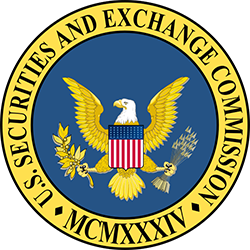Offshore binary options firm falls foul of SEC
Chris Hamblin, Editor, London, 14 November 2016

The US Securities and Exchange Commission has announced that an Israeli firm must pay more than $1.7 million for misleading investors into trading binary options over the Internet and has voiced its worries that other firms may be doing the same thing.
Binary options generally have an all-or-nothing payout structure in which investors bet on the increase or decrease in value of a company stock or other securities serving as the underlying asset. The options contract expires after a fixed amount of time and if an investor predicts wrongly he might lose all of his so-called 'investment.'
According to the SEC’s order against EZTD Inc, the firm failed to register the binary options or register as a broker-dealer to legally sell the investment to US investors. It also failed to warn punters on its trading platforms that there was significantly greater potential for investors to lose rather than earn money. EZTD instead made statements that extolled the profitability of trading binary options, calling it a “highly profitable trading platform” and “an extremely lucrative avenue for individuals who are looking to see an increase in income.”
The SEC’s order says that less than 3% of the 4,000 Americans who opened accounts with EZTD actually made any profit on their investment. It revenues were, therefore, largely derived from customers' trading losses at the very moment when it was proclaiming the profitability of binary options. The SEC believes that it should have told them that the odds were stacked against them. It also wants the public to know that off-exchange binary option trades are, all too often, fraudulent. It is also worried that 'investors' might be induced to put in more money to make up for their losses - something that did not happen in the EZTD case.
EZTD contravened ss5(a), 5(c) and 17(a)(2) Securities Act 1933 and s15(a)(1) Securities Exchange Act 1934, according to the regulator, but has not admitted or denied it. It has had to forfeit approximately $1½ million in revenues obtained from its customers and pay a $200,000 penalty. It no longer sells binary options in the US market.












